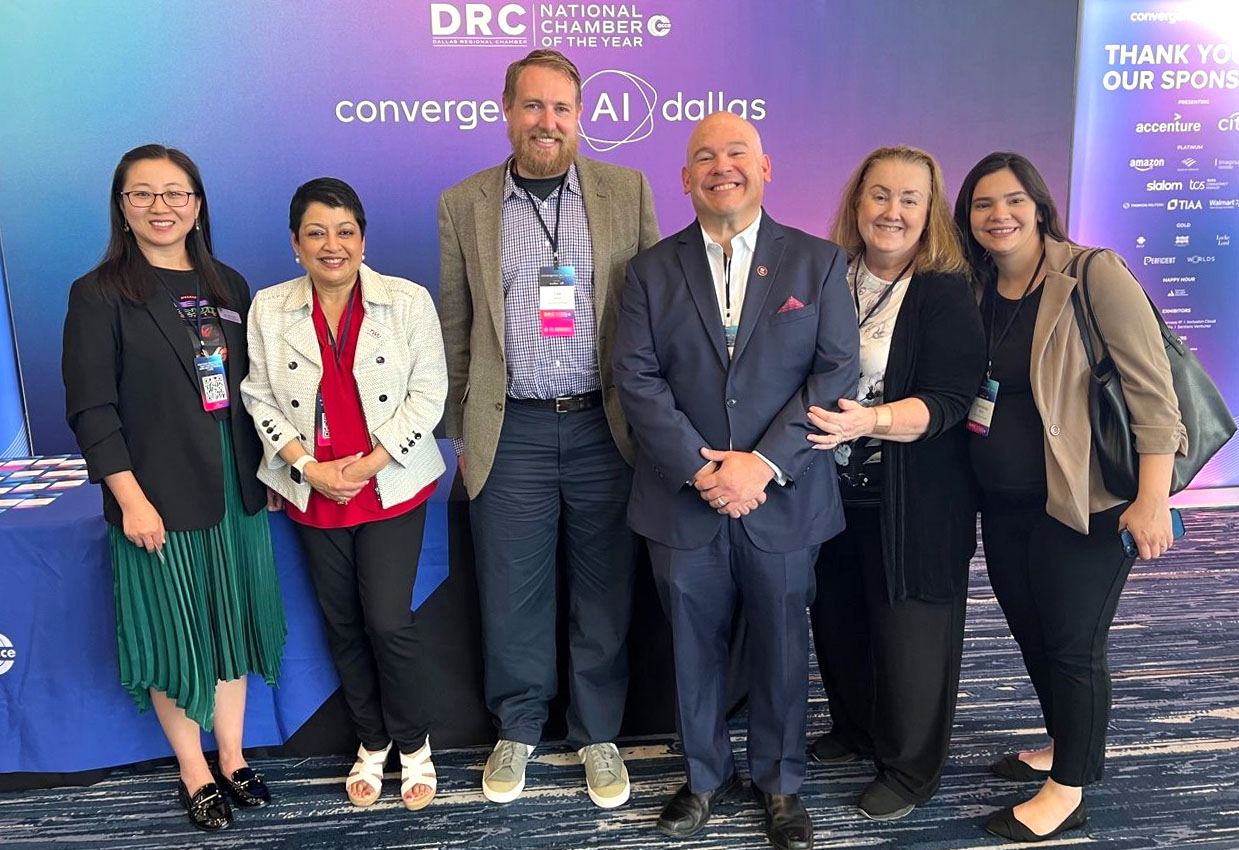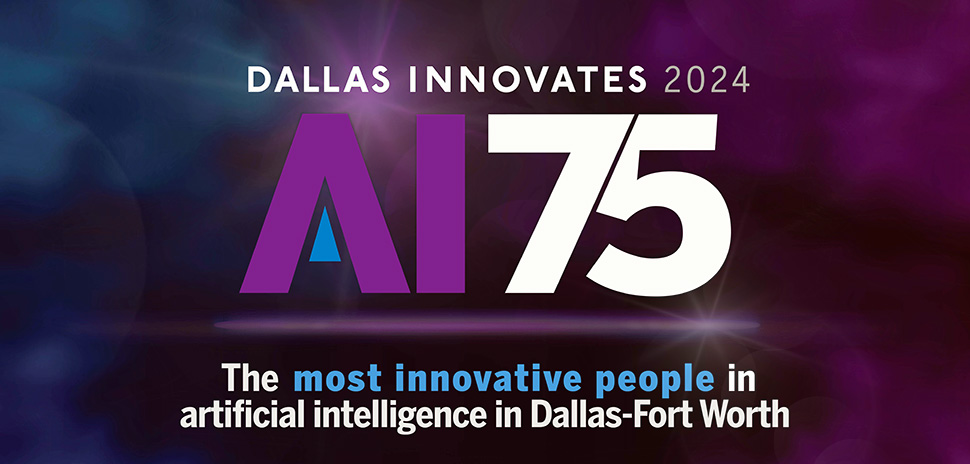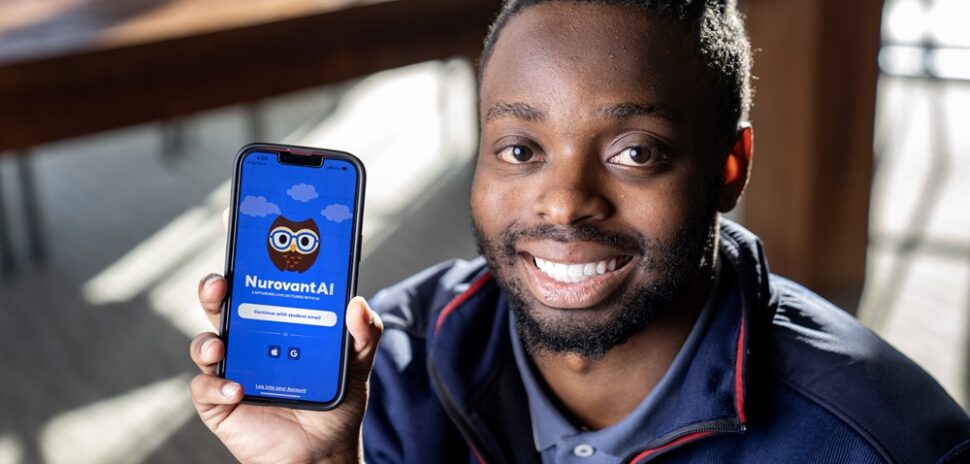![]() Until recently, the majority of Lee Brown’s academic career and research at Texas Woman’s University had centered on corporate political activities and business-government interaction. But just two short years ago, Brown, the business college’s associate dean of research and an associate professor of management, started delving into artificial intelligence technology.
Until recently, the majority of Lee Brown’s academic career and research at Texas Woman’s University had centered on corporate political activities and business-government interaction. But just two short years ago, Brown, the business college’s associate dean of research and an associate professor of management, started delving into artificial intelligence technology.
Since then, he has presented on the use of AI in the classroom at national and international conferences and universities, incorporated AI into his classes, and is working on multiple research projects that explore the use of AI in the workforce.
In May, Brown was named to the list of the 75 most innovative leaders in AI in DFW from Dallas Innovates.
“What excites me most about AI right now is its transformative potential across various domains, not just within education but extending into every sector of society and business,” Brown said. “Specifically, the rapid advancements in generative AI are particularly exciting. These technologies are not only enhancing how we handle data and automate processes but are also revolutionizing the way we think about creativity and problem-solving in fields ranging from marketing to human resources and beyond.”
Brown’s interest in AI started out as a directive from Rama Yelkur, dean of the Merrilee Alexander Kick College of Business at Texas Woman’s University. She tasked the college’s Research and Scholarship Committee in 2022 with exploring and understanding AI technology. As committee chair, Brown immersed himself in studying AI. The committee’s goal was to help prepare and inform faculty about the potential impacts and applications of AI in academia. Since then, Brown has continued to follow AI developments closely.
Brown began incorporating AI into his classes. In his MBA classes, he uses AI to bridge the gap between theoretical knowledge and practical application.
“One of the ways I do this is by assigning students projects where they are tasked with automating a component of their current job using AI tools,” Brown said. “This assignment not only exposes them to the practicalities of AI in the workplace but also encourages them to think critically about the integration of technology in streamlining business processes.”
In his capstone strategy course, students are required to create projects such as firm analysis or business plans that include promotional material, which can be a challenge since graphic design and data analytics are sometimes out of their expertise.

Portrait of Lee Warren Brown. Photographed on Tuesday, January 30, 2024 (Leo Gonzalez / TWU Photo)
“By leveraging AI tools, they can overcome these roadblocks,” Brown said. “AI applications assist them in generating data-driven insights, creating professional-quality graphics, and even drafting content that would otherwise be difficult to do in the time frame allotted in an academic semester. As a result, their final portfolios are significantly improved, equipping them with the practical tools and insights needed to succeed in industry. AI is not used to outsource their thinking, but rather is used as a tool to bring their thinking to life.”
Brown believes that AI can be a transformative tool for faculty but cautions that the use of AI should be tailored to the goals of each course.
“AI might bypass the essential learning processes needed to build a solid base of knowledge and analytical ability,” Brown said. “Just as young students need to learn basic arithmetic to develop critical mathematical thinking, students in certain academic fields must first understand the underlying principles and theories before using AI to handle more complex tasks.”
Brown is one of several COB faculty that are conducting research on AI. He is focused on how individual differences influence the effective use of AI in the workplace.
“I am particularly interested in the contrasting ways that generalists and specialists utilize generative AI technologies,” Brown said. “This work aims to explore how diverse professional backgrounds affect their proficiency with AI tools, potentially informing more targeted training programs and the development of AI systems that accommodate varying levels of expertise.”
Lee is not alone in the College of Business in pursuing research AI. Dan Chen, an assistant professor in management, is analyzing AI’s use in HR practices, and Fernanda Muniz, an assistant professor in marketing, is examining the perceptions of AI in marketing.
Brown is excited about AI’s ability to personalize learning and adapt to individual needs in educational settings which could open doors for teaching and learning.
“It promises to make education more accessible and tailored, which could dramatically improve learning outcomes for students across diverse backgrounds.”
Learn more about TWU at twu.edu.
![]()
Get on the list.
Dallas Innovates, every day.
Sign up to keep your eye on what’s new and next in Dallas-Fort Worth, every day.




























